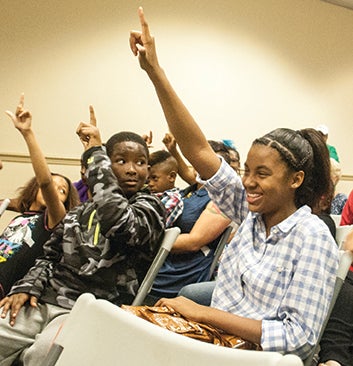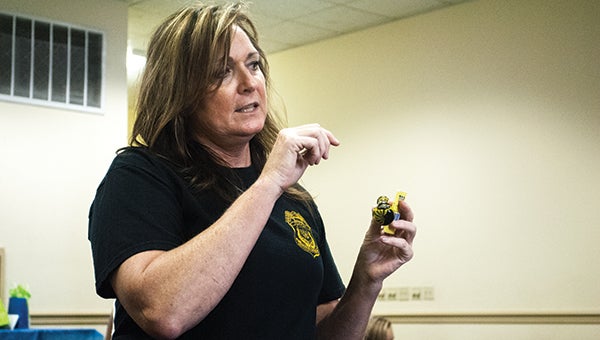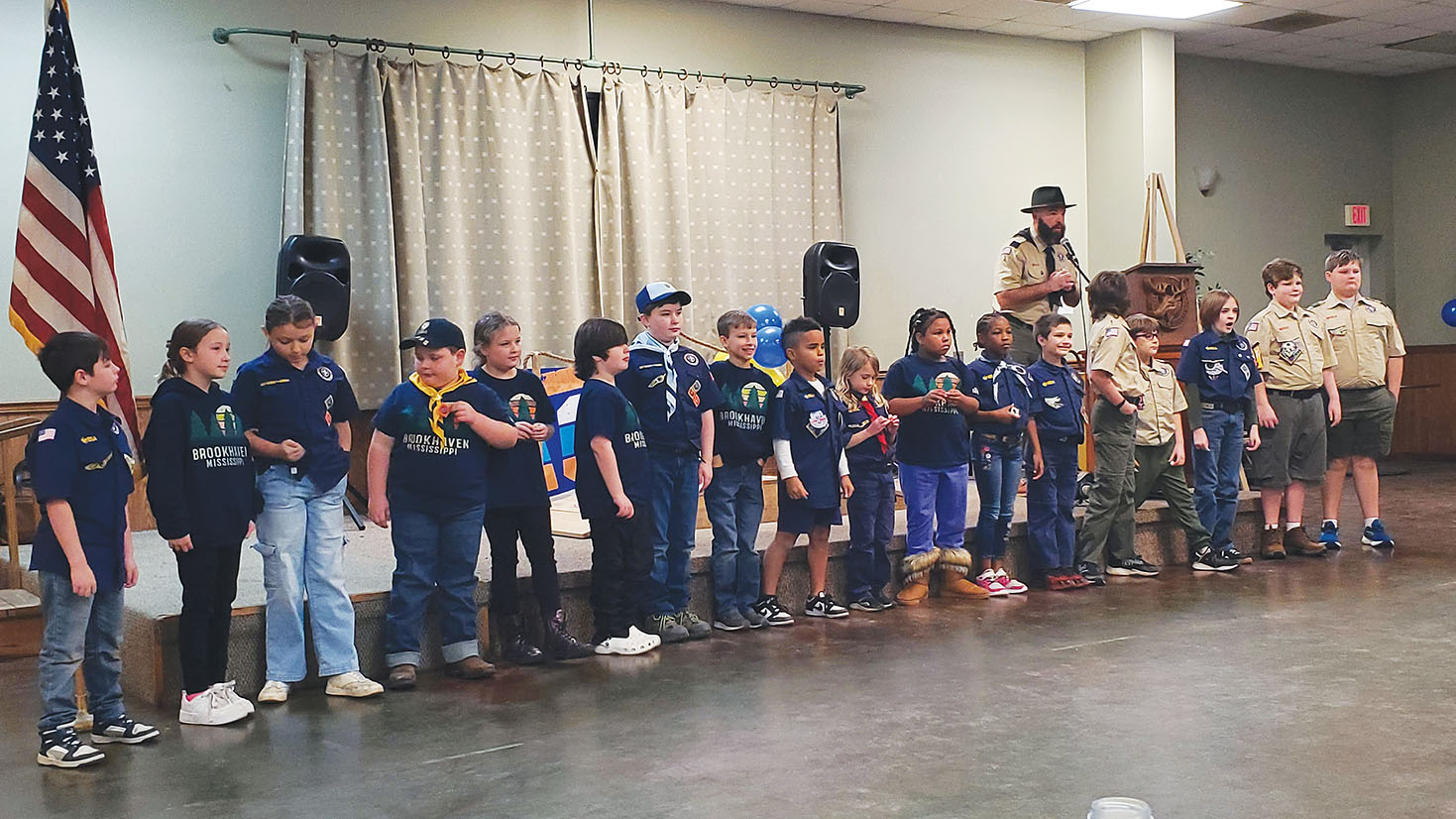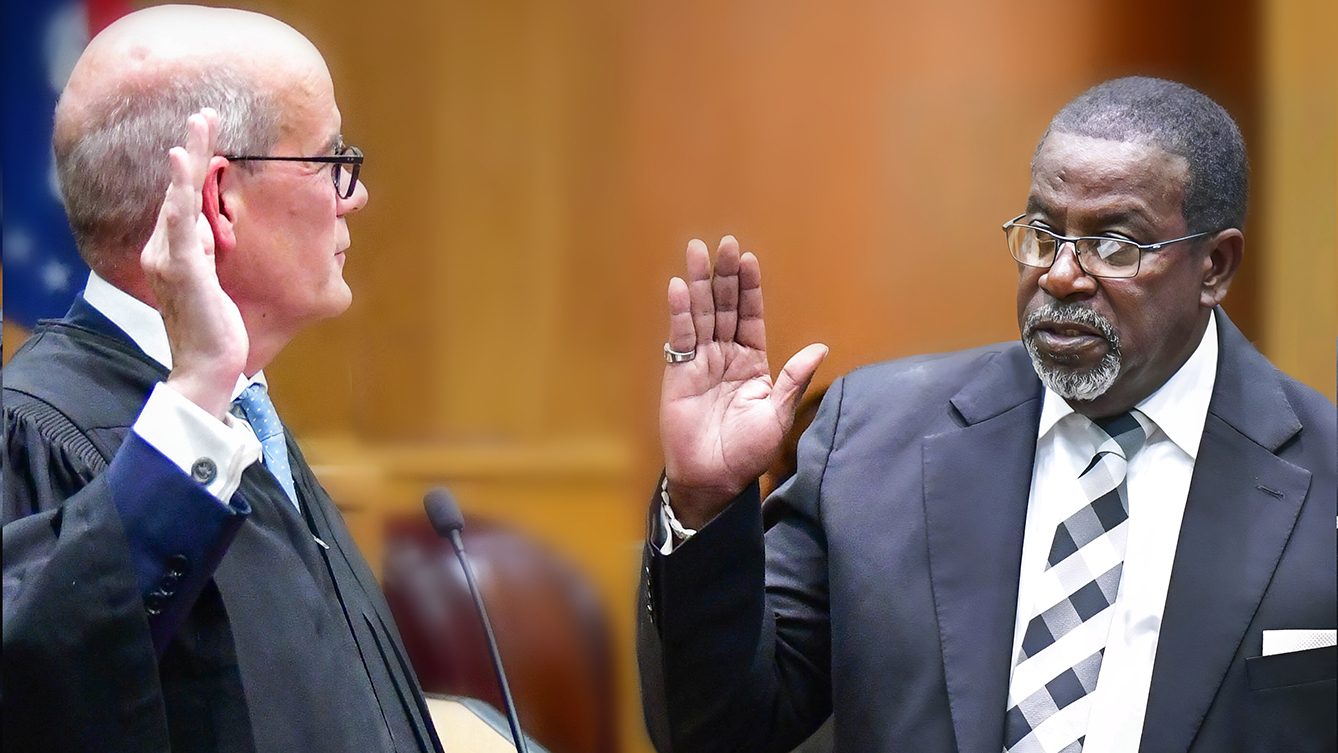Community fights back against spice
Published 10:50 am Tuesday, October 27, 2015
“If you’re not doing spice, you’re still affected by it.”
Stella Maxwell-Sanders organized a community event Saturday at the State Room in an effort to push back against the effects spice has had on the community. Maxwell-Sanders said the synthetic drug has impacted her family and many other families in the area.
“We need to take our children back,” she said.

Audience members lifted their hands in the shape of L’s during Will Gatlin Music Group and Trip C’s performance of their song “Love is What We Need.”
Lisa Jackson, a deputy for the Lincoln County Sheriff’s Office and a member of the Southwest Narcotics Unit, said spice is a mixture of herbs, just like those found in the average kitchen, that have been sprayed with a chemical coating. The chemical, just like bath salts or crystal methamphetamine, has nothing natural about it. She said that chemically the three drugs are very similar. The difficulty in regulating spice is that the chemical makeup is constantly changing.
“For us to prosecute, it has to come back positive for a controlled substance,” she said. “They’re always one step ahead.”
However, Jackson said recently they’re getting more and more hits, so she believes the most recent update to the law will help increase enforcement.
Jackson said spice is marketed as a synthetic marijuana, but estimates suggest that the potency is almost 1,000 times higher.
“It looks like they’ve gone off the deep end,” she said.
She showed a picture from a recent case where the sheriff’s office responded to a call about a man on spice. Originally, two deputies were sent out to the location, but they quickly realized they needed backup. Ultimately seven deputies were needed to restrain the man.
“He had found rusty nails and proceeded to put tattoos on himself,” she said. “They’re horrible paranoia-type hallucinations.”
Ashley Martin, a registered nurse at Southwest Mississippi Regional Medical Center, said that mild spice symptoms include red eyes, hunger and slurred speech. Symptoms can increase in severity to psychotic breaks and seizers.
Spice can cause acute renal failure, which is when kidneys stop working. Martin said kidneys remove toxins from the body, so overtime your body slowly drowns itself.
Perspiration insufficiency can also be caused by spice, which leads to lung damage and collapse. Young adults and teens have had heart attacks because of spice. Users can suffer from hyperthermia, which causes fever to spike. Martin said they cannot lower the fever with normal medicines and must rely on things like to ice to lower the body temperature.
Jackson predicts once more studies are done on spice and bath salts, they will show the same long-term effects as crystal methamphetamine. She said paranoia and depression continue to affect users three years after they quit.
Jackson said the best way to tell the difference between marijuana and spice is the smell. Spice does not have the same skunk-like, distinctive smell.
Many parents present at the meeting voiced concerns about pipes and grinders being sold at gas stations, but Jackson said according to an attorney general’s statement they cannot be considered paraphernalia until it has been used.
Though Jackson said teaching people about drugs is an important part of prevention, she also said addiction is a symbol of a sick soul.
“I’ve got something that will help you,” Jackson said impersonating a dealer. “It’ll make you forget your problems. But what they don’t tell you is that when that high goes away is the problems are still there.”
Jackson said people become dependent on drugs because they destroy the brain’s natural ability to produce positive hormones, such as endorphins.
“Natural highs are the best feeling in the world,” she said. “Those will keep you away from drugs.”
She said every recovering addict needs to be surrounded by loving family and friends. The community needs to stand beside these people as work to overcome their own demons. She said it’s even worse for those selling. Many times, other dealers will threaten and even kill those who try to stop selling. The community needs to support these reformed sellers as well.
“We need to stand in front of them as say, ‘you will not touch them. They are not yours anymore; they are ours,’” she said.
Rev. Dianne Dalton spoke about her own experience of being married to an addict for 16 years.
“They are the best con artists you will ever see,” she said. “As a community we have to stop turning the other way. When I was young, I tried weed. I could’ve been statistics.”
Dalton said parents need to have real conversations with their kids, and let them know about their own mistakes.
“Make them feel comfortable,” she said. “Let them know you’re not a saint.”
The session ended with a performance by Will Gatlin Music Group and Trip C, who both believe that God is the answer to the war against drugs. Their first song “Love is What We Need” was inspired by a spice-related death in McComb. Bruce Gatlin, who uses the stage name of Will Gatlin in honor of his grandfather, said a 21-year-old was babysitting a 10-year-old and 8-year-old while under the influence of spice. According to reports, the man thought one of the boys was an alien and put a gun to his head and pulled the trigger.
“We all have to be responsible for something,” Gatlin said quoting his song.
He asked that the community start standing up and turning people in when they see drug activity. He said disciplining is sometimes the best form of love parents and adults can show.






